According to the 2020 Census of Agriculture, only 13.4% of farm holders in Ireland are female – 20% for holdings under 10ha.
One such farmer is Madeline McKeever, who bought her 30ac farm overlooking Roaringwater Bay, near Skibbereen, in 1987.
It’s the kind of landscape where, if you could “eat the view”, you’d never go hungry. But scenery doesn’t pay the bills and Madeline’s farming journey has been shaped by decades of hard graft and her impressive capacity to adapt and innovate.
Adapting
Madeline grew up on a farm in Co Meath, which gave her a good working knowledge – and early appreciation – of working with nature. Thus began a lifelong fascination with plants, natural and cultivated: she went on to study botany in college, earning two degrees on the subject.
When she began her own farming career in west Cork, it was in dairying, but Madeline found that this wasn’t very viable – or realistic, particularly with two young children to rear. So, after 15 years of milking, she decided to sell her milk quota and switch to beef. Her system was to fatten bought-in weanlings and – with a focus on quality over quantity necessary on such a smallholding – marketed them directly as Ardagh Organic Beef, typically doubling their value.
Madeline still keeps a small number of Angus cattle today but is frustrated at the rising costs – both of buying-in weanlings and of necessities such as organically-sourced bedding-straw which was prohibitively expensive this year.
Diversifying
Another significant change which Madeline made to make life easier, and stabilise her income, was to plant part of her farm – an awkward section from which stock often escaped – with broadleaved trees in 2005.
The 15 acres of woodland today boast clusters of flourishing oak, with alder and ash to nurse it along.
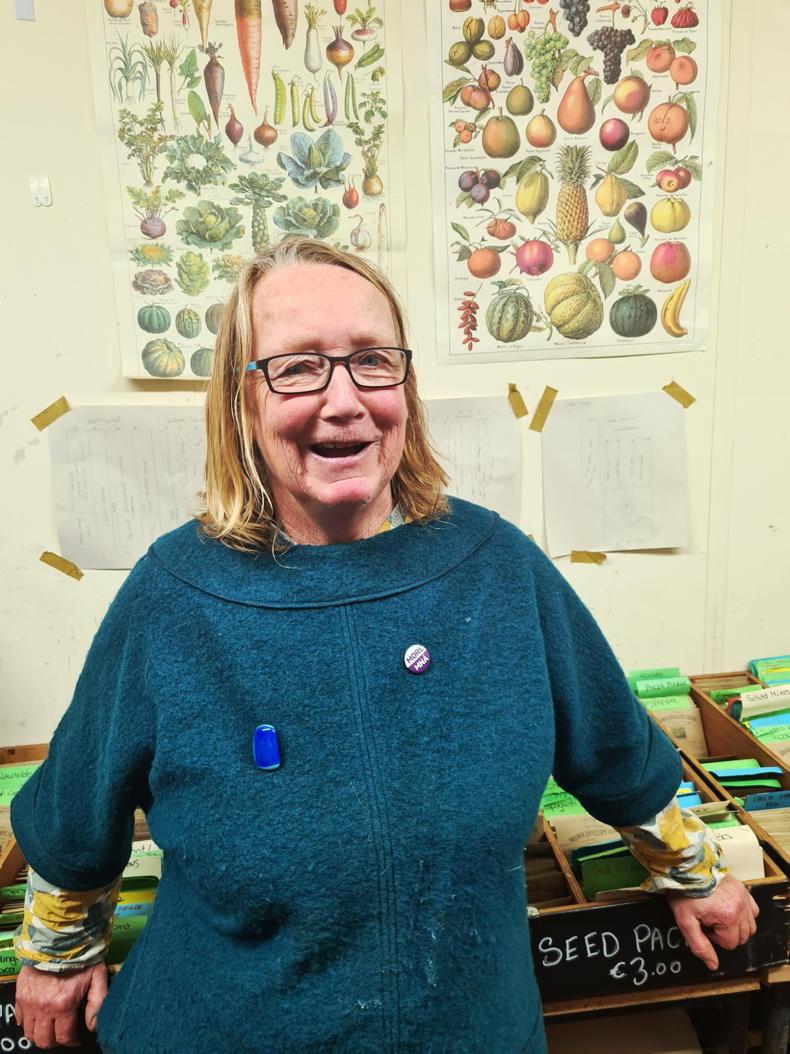
Madeline McKeever.
Madeline is thrilled with the result: she and her partner Mike derive enormous pleasure from managing it and watching it mature – far more quickly than anticipated. Agroforestry is an option she hopes to explore further, tempted by the improved grants on offer.
Forestry premia, organic payments and agri-environment schemes have not only underpinned Madeline’s farm viability, but also resonated with her strong sustainability ethic.
A wonderful, windswept whitethorn hedge – a legacy of REPS – provides shelter from buffeting sea winds. Several ponds make good wildlife habitats and act as a backup water supply for livestock. Madeline cuts her pastures late for silage, and these are noticeably species-rich with plants such as sorrel and yarrow, with choughs, chiffchaffs, redwings and fieldfares frequently seen.
Growing resilience
Madeline’s farm also features several scattered polytunnels and no-till plots where she grows everything from Gortahork cabbages to asparagus, kale, and “the kind of onion that makes you cry”.

Madeline at a sediment pond she recently created in a corner of her oak woodland.
All of Madeline’s plants are open-pollinated, which she believes enables greater adaptability, resilience and thus crop performance.
Indeed, a master’s research project by her daughter Holly found that successive generations of corn grown on the farm gradually adapted to produce smaller, but earlier, higher-yielding cobs.
This is significant at a time when we are losing seed diversity globally, potentially limiting the ability of crops to adapt to a rapidly changing climate (an important theme at this week’s COP 28 Climate Summit).
Madeline is passionate and pioneering about plants and the need for us to grow more of our own food, ideally using locally adapted varieties.
Madeline herself has certainly adapted to, and enhanced, her small patch of this wonderful west Cork landscape. Her inspiring story is also living testament to the enormous, largely understated, contribution of women to Irish farming and food and - particularly in Madeline’s case – to rural sustainability.
If using open-pollinated seed, consider letting some plants mature and save the seed. To avoid seeds getting mouldy, dry them well – Madeline uses a dehumidifier and small packets of silica gel. Madeline has developed a website seedie.ie where seed savers and enthusiasts can trade seeds.
Madeline hosts a range of training events at her farm – for details,visit here.A reminder for farmers interested in applying for the Organic Farming Scheme: this will remain open until Friday 8 December. Learn more at www.teagasc.ie/rural-economy/organics/
According to the 2020 Census of Agriculture, only 13.4% of farm holders in Ireland are female – 20% for holdings under 10ha.
One such farmer is Madeline McKeever, who bought her 30ac farm overlooking Roaringwater Bay, near Skibbereen, in 1987.
It’s the kind of landscape where, if you could “eat the view”, you’d never go hungry. But scenery doesn’t pay the bills and Madeline’s farming journey has been shaped by decades of hard graft and her impressive capacity to adapt and innovate.
Adapting
Madeline grew up on a farm in Co Meath, which gave her a good working knowledge – and early appreciation – of working with nature. Thus began a lifelong fascination with plants, natural and cultivated: she went on to study botany in college, earning two degrees on the subject.
When she began her own farming career in west Cork, it was in dairying, but Madeline found that this wasn’t very viable – or realistic, particularly with two young children to rear. So, after 15 years of milking, she decided to sell her milk quota and switch to beef. Her system was to fatten bought-in weanlings and – with a focus on quality over quantity necessary on such a smallholding – marketed them directly as Ardagh Organic Beef, typically doubling their value.
Madeline still keeps a small number of Angus cattle today but is frustrated at the rising costs – both of buying-in weanlings and of necessities such as organically-sourced bedding-straw which was prohibitively expensive this year.
Diversifying
Another significant change which Madeline made to make life easier, and stabilise her income, was to plant part of her farm – an awkward section from which stock often escaped – with broadleaved trees in 2005.
The 15 acres of woodland today boast clusters of flourishing oak, with alder and ash to nurse it along.

Madeline McKeever.
Madeline is thrilled with the result: she and her partner Mike derive enormous pleasure from managing it and watching it mature – far more quickly than anticipated. Agroforestry is an option she hopes to explore further, tempted by the improved grants on offer.
Forestry premia, organic payments and agri-environment schemes have not only underpinned Madeline’s farm viability, but also resonated with her strong sustainability ethic.
A wonderful, windswept whitethorn hedge – a legacy of REPS – provides shelter from buffeting sea winds. Several ponds make good wildlife habitats and act as a backup water supply for livestock. Madeline cuts her pastures late for silage, and these are noticeably species-rich with plants such as sorrel and yarrow, with choughs, chiffchaffs, redwings and fieldfares frequently seen.
Growing resilience
Madeline’s farm also features several scattered polytunnels and no-till plots where she grows everything from Gortahork cabbages to asparagus, kale, and “the kind of onion that makes you cry”.

Madeline at a sediment pond she recently created in a corner of her oak woodland.
All of Madeline’s plants are open-pollinated, which she believes enables greater adaptability, resilience and thus crop performance.
Indeed, a master’s research project by her daughter Holly found that successive generations of corn grown on the farm gradually adapted to produce smaller, but earlier, higher-yielding cobs.
This is significant at a time when we are losing seed diversity globally, potentially limiting the ability of crops to adapt to a rapidly changing climate (an important theme at this week’s COP 28 Climate Summit).
Madeline is passionate and pioneering about plants and the need for us to grow more of our own food, ideally using locally adapted varieties.
Madeline herself has certainly adapted to, and enhanced, her small patch of this wonderful west Cork landscape. Her inspiring story is also living testament to the enormous, largely understated, contribution of women to Irish farming and food and - particularly in Madeline’s case – to rural sustainability.
If using open-pollinated seed, consider letting some plants mature and save the seed. To avoid seeds getting mouldy, dry them well – Madeline uses a dehumidifier and small packets of silica gel. Madeline has developed a website seedie.ie where seed savers and enthusiasts can trade seeds.
Madeline hosts a range of training events at her farm – for details,visit here.A reminder for farmers interested in applying for the Organic Farming Scheme: this will remain open until Friday 8 December. Learn more at www.teagasc.ie/rural-economy/organics/







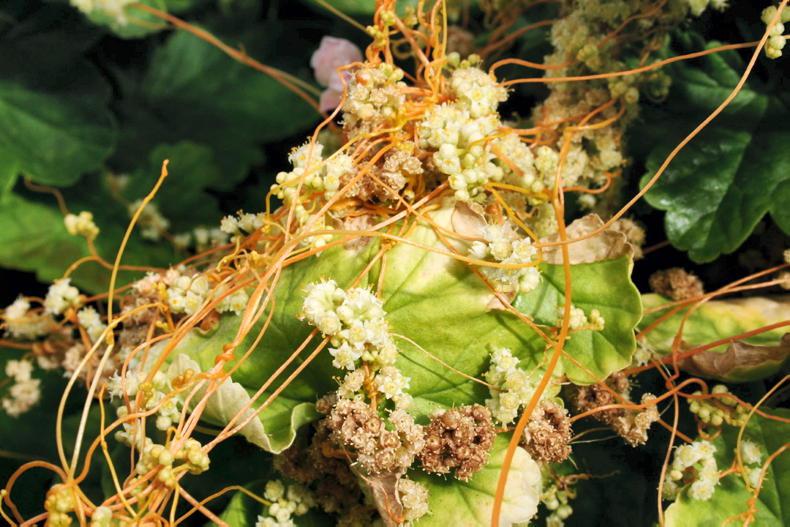
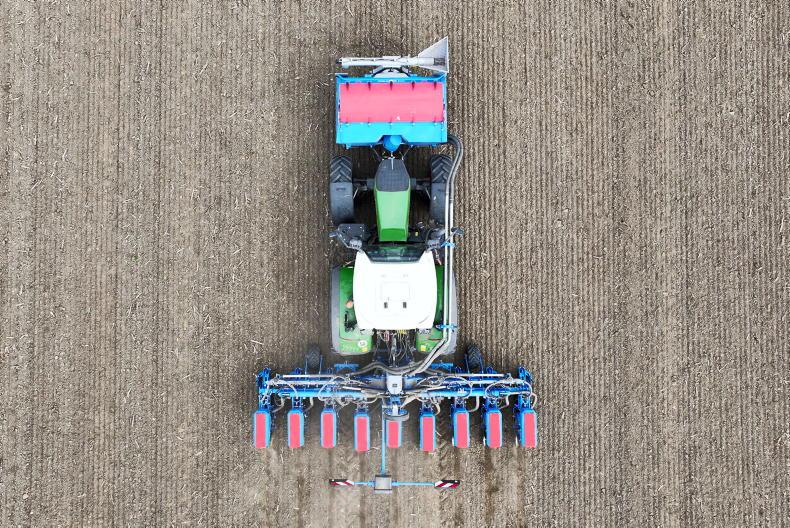
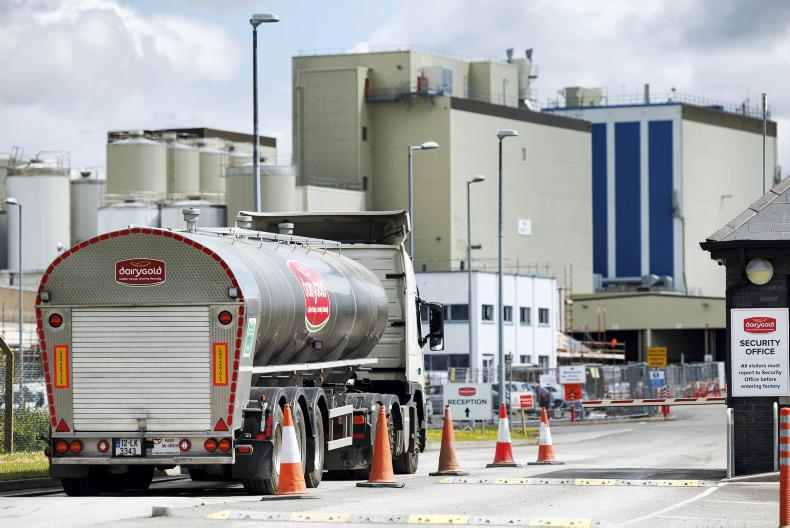
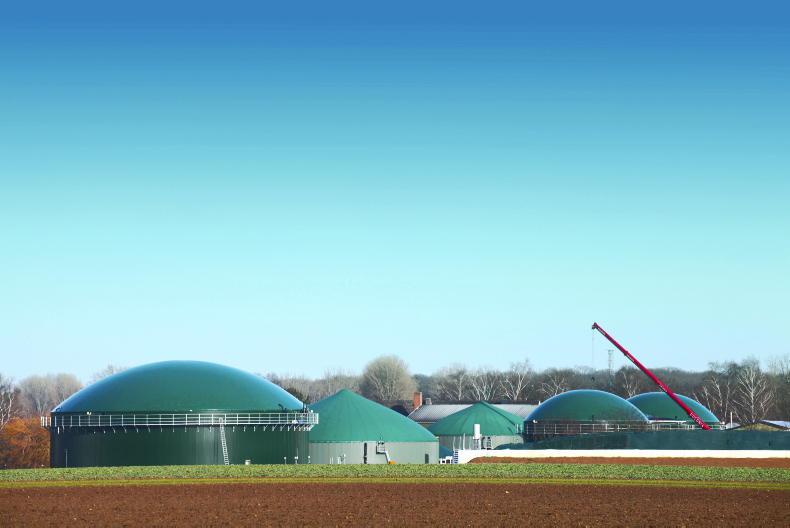
SHARING OPTIONS